We get asked a lot of questions about Health Risk Assessments (HRAs), which makes sense. After all, Wellsource created the first computerized HRA. We’ve come a long way since 1972 when our founder, Dr. Don Hall, wrote the first algebraic equation to help assess individual health.

Throughout that time, there are some questions that have remained fairly consistent over the years.
Here are the 5 most common questions we get asked about HRAs.
1. What Is A Health Risk Assessment?
A Health Risk Assessment is a questionnaire that evaluates your health risks and quality of life and provides results that indicate your risk of chronic conditions (such as heart disease or diabetes).
The idea for HRAs came about in the 1940s when Dr. Lewis C. Robbins began using questionnaires and surveys to not only treat his patients but also help prevent further illness and chronic disease. Wellsource founder Dr. Don Hall created the first computerized health risk appraisal in the US in 1979. By comparing known statistics on risk with individual self-reported answers to survey questions and plugging them into his algebraic equation, Dr. Hall revolutionized the HRA process and the industry.
2. Why Should Our Population Take An HRA?
There are a number of benefits to completing an HRA. It’s a fantastic way for individuals to get a snapshot of their overall health and risk factors. By helping your population identify their risk factors, they’ll be able to work closely with their care providers to monitor their health more closely. This means that diseases and illnesses, such as certain types of chronic diseases like diabetes or high blood pressure may be able to prevented, which will, in turn, eliminate treatment costs.
Encouraging your population to complete their HRAs allows your organization to focus on what type of resources to provide. You can evaluate the current standing of your population’s health and see whether it makes sense to offer resources one-on-one or begin group initiatives to get the whole team on track to better health together!
3. How Accurate Is the Data?
The fact of the matter is that much of the data used during an HRA is self-reported. But, in the past four decades, we’ve gotten really good at collecting data as well as asking the right questions the right way to help participants provide the most accurate answers. We know that reducing the cognitive load on the individual by not requiring them to think back to what they did six months ago or add up tons of data means more accuracy. We also know that creating an environment of trust will encourage individuals to be more forthcoming with their self-reported data.
Additionally, all of the data that we use to compare responses against and provide the assessments is compiled from reputable (and often well-known) sources such as the U.S. Preventive Services Task Force, well-conducted studies published in medical journals, and the Centers for Disease Control and Prevention.
4. Is My HRA Confidential?
The confidentiality of HRAs varies depending on the setting of the issuing organization. The purpose of HRAs is to provide assistance and resources to the individuals taking them and to help them create a positive health journey. If the administrator’s goal is to provide personalized resources and assessments, they need to be able to see the results for each individual.
5. Will My Results Impact My Benefits/Insurance Eligibility?
It’s possible, but only in a positive way. Thanks to various regulations such as HIPPA, GINA, ADA, et cetera it’s illegal to be discriminated against on the basis of your HRA results. Therefore, if your HRA is being administered by an insurance broker, they’re going to be using your results to match you with the best possible plans for your current health status.
It’s also possible (though not guaranteed) that you could benefit from incentives paired with your HRA. Some employers offer a monetary reward (who doesn’t love a gift card to your favorite online retailer?) while others may have partnered with local gyms, nutritionists, or other wellness providers to offer discounts on memberships or services.
Are you interested in learning more about choosing the right health risk assessment? Download our whitepaper, How To Choose the Best Health Risk Assessment.







